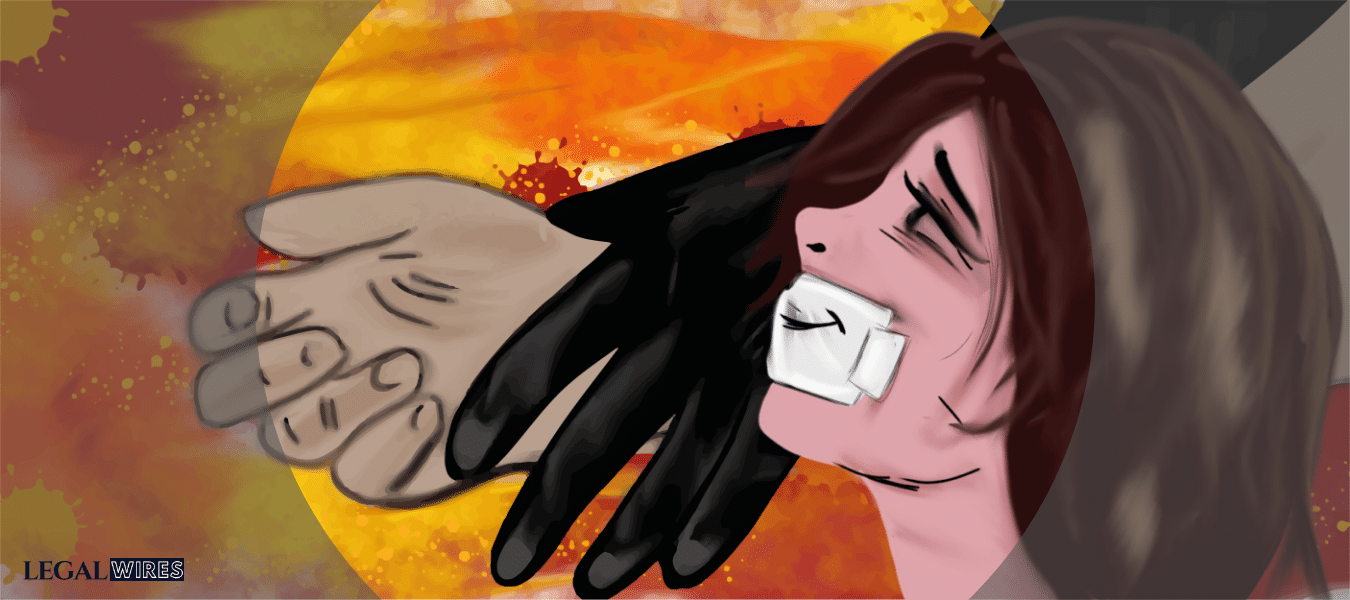Rape, a sexual assault that is growing at a rapid rate across the world. A crime which has different laws in different countries.

Women who are the backbone of society, country, and world without whom existence of the world is not possible. However, their condition is not well in the society. In Vedic period the status of women was better. They had the right to education, freedom of movement etc. In the post-Vedic period status of women suffered a setback when various restrictions were put on the women’s right by Manu. According to many smriti marriage age of girls was 9 to 10 years, birth of daughter became a source of disaster for father.
In the medieval period the position of women was further degraded, education training came to a sudden halt, there was restriction on their movement. In mugal period status of women was not equal to mem. They were considered to be limited to their house only for the purpose of taking care of children, family. Their whole life was confined in the kitchen. In British period due to the impact of western education the status of women changed. Various social reform movements took place to change the status of the women.
Most important event after independence has been by drafting of India Constitution as the framer of the Constitution were aware with the problem emancipation of female sex. Various law and provision are passed to give equality to the women.
There is equality in the status of women on paper but reality is very different. There is prohibition on harassment of women in work place but is it follow, provision related to the dowry death but the number of cases increase day by day, child marriage, rape, domestic violence, harassment inequality in status etc. are the offence which is carried out thorough out the world and increases day by day.
Rape is type of sexual assault which is done by the sexual intercourse, sexual penetration without the consent of the person against who the act is committed. Rape is carried out by any one by father, husband, brother, relatives, teaches, but the point is important to establish the offence of rape consent of the victim is very important without consent only offence is stablished otherwise it’s is not offence. Indian penal code also defines rape and its punishment in section 375. Rape is considered as a criminal offence through out the world but along with the penal punishment and provision number of rape cases increases very high day by day. Over 1.75 lakh rape cases were reported in the country between 2014-18 in Madhya Pradesh registering the highest number of cases all through this period. In India 90 women are raped per day which is very shameful for the whole country as women do not feel safe at any time at any place.
Rape, a sexual assault that is growing at a rapid rate across the world. A crime which has different laws in different countries. It is a crime which is the fourth most crime against the women especially in male dominating countries. It is a crime which has covered almost 65 countries of the world and a crime which is feared to be reported by the victims. In developing countries, we all talk about the development, equality, freedom, modernization, technology advancement, growth and we have realised few of them but without providing adequate security to the women these things are of no value. In various country like Pakistan, Afghanistan, Bangladesh the law related to rape is a very different victim in these countries don’t feel safe while reporting a case due to the law enforced in the country. Rape, a sexual assault that is growing at a very rapid rate across the world. A crime which has different laws for its own in different countries, a crime which is the fourth most crime against the women especially in male dominating countries, a crime which has covered almost 65 countries of the world and a crime which is feared to be reported by the victims.
Even in India there are strict laws relating to the rape but everyday we have a such type of news about 99 women in a day raped in India. These are those case which are reported but there are various case which due to the family reputation, girl reputation, person who did are not reported. Women are not feeling safe in a day or a night because they are not safe at any time and anywhere. These all things are done due to the male dominant society. We are always there to ask a girl thousand of questions, comment on her dressing sense, doubt their character if they do a night out if they talk to boys. We are always there to point out, to blame a girl for everything, always ready to give suggestions to them that they should do this-that, they should not go there, etc. Even parents do not question boys. If the boys are controlled then these things will not happen.
There are various countries where law related to the rape is very strict like Saudi Arabia they are follow an Islamic and shariyat law and punishment for rape is public beheading which sets an example in a society. China has strict laws for rape and the death penalty is declared once the rapist is convicted. In North Korea the offender is either shot dead by firing squad. So, these punishments put an example and fear between the public.
In India chastisement is done when any rape case comes before the society. Rapist must be punished with capital punishment only. If we really want to change the environment then we need to take a change first from our side by changing the people’s mentality, by controlling boys of our house and make a safe environment for the women in reality.


